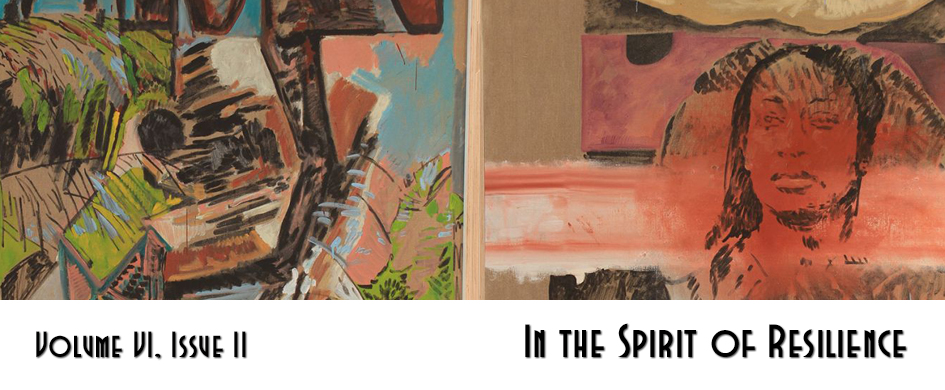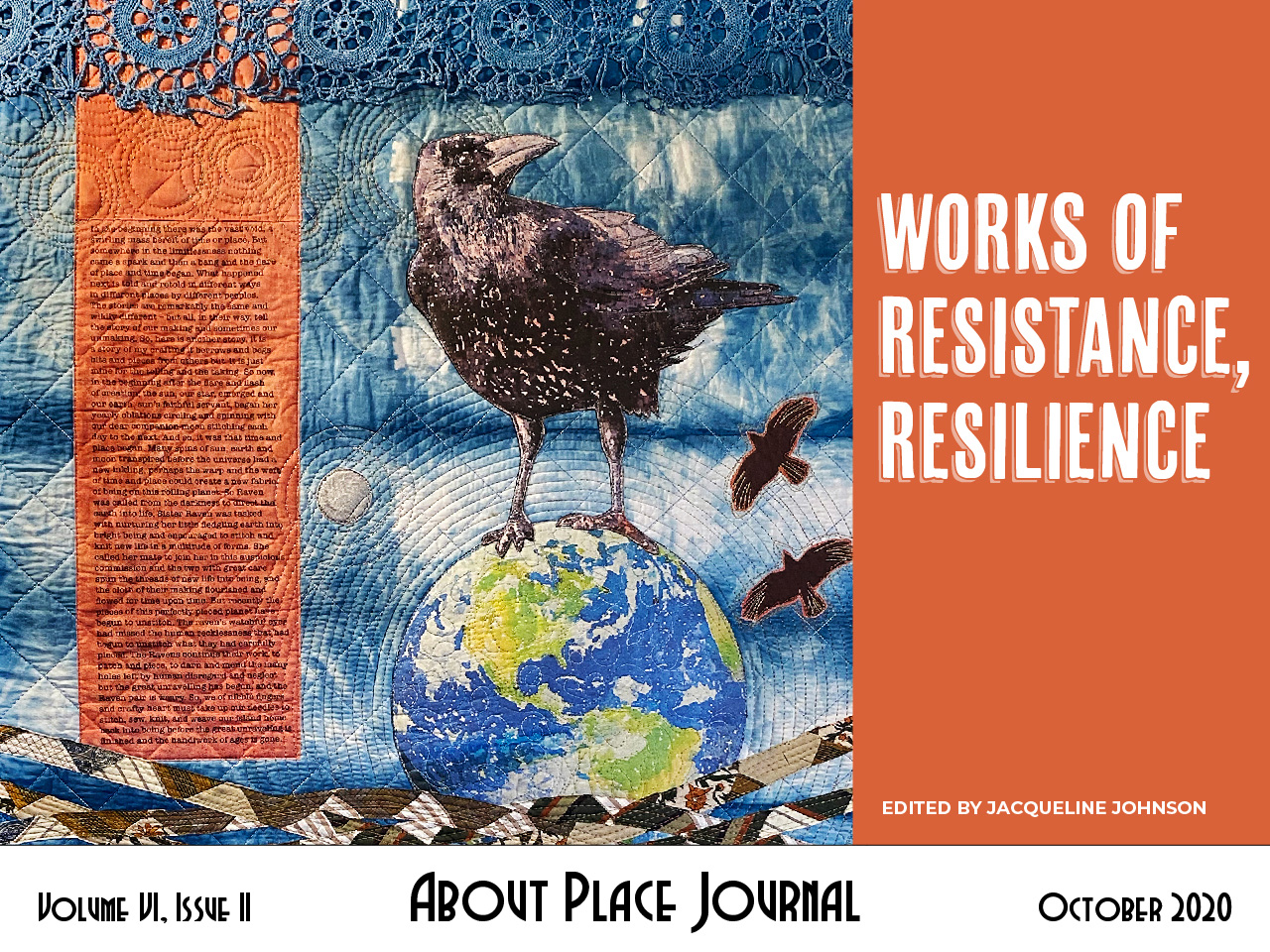My grandmother taught herself the mandolin when I was very young, too young to remember. I don’t recall the fits and starts of her apprenticeship, the squeaky out-of-tune notes, the unpleasant clang of a chord stroked incorrectly. My memories begin with her excellence, the sweet tinkling melody. My grandfather had learned the guitar as part of his recovery from the horrors of the Second World War. He was a platoon leader in the Philippines where the jungle was so thick that he trained himself to bring his arms up above his head after hurling a grenade, to deflect the body parts of Japanese soldiers that would rain back upon him.
They began to play together summer evenings at their house in the White Mountains of New Hampshire. My mother learned guitar; my grandmother had already mastered the upright bass. Together, they made an accidental folk trio. My grandmother made songbooks, painstakingly typing out all her favorite songs, dozens and dozens, on a typewriter and binding them into spring-green folders that have since faded with age.
My memories blur. Myself, my father, my sister, our young cousins, my mother, her two sisters, her brother, my grandparents — we swim together in my recollections. The hazy warmth of the living room with its massive arched windows looking out towards the mountains. Our voices raised in song. My mother and grandmother harmonizing on The Ash Grove.
*
The White Mountains of New Hampshire are vast and ancient. They sprawl in their stony elegance across the northern third of the state, and northwards into Maine. Glacial in origin, massive chunks of granite bedeck their slopes, creating stark, rounded scarps chipped with mica that sparkles in direct sunlight. Lush forests of birch and maple cloak the lower slopes, smoothly transitioning to stunted pines and scrubby spruce as the elevation climbs.
Snowmelt from the mountain peaks bubbles down through these woodlands in the form of racing brooks and clattering cataracts, their rush and splash resounding for miles throughout the forest. Warblers, thrushes, thrashers, tanagers, and ovenbirds flit about these woodlands in the warmer months, darting from tree to stump and back to tree in search of grubs and seeds and nesting materials. Their chirps and trills layer the canopy, accompanying the slender streams of sunlight that pass through the treetops to filter the forest floor with stripes.
It is a land of moose and bear. Of red fox and fisher cat. Of mink and otter. Of beaver and cedar waxwing and bluebird. It’s a land of paper-white birch and stringy-barked cedar and tangled thickets of blackberry that hang rich with dark fruit in August. It is a land that I know well.
My great-grandfather, Douglas Horton, was a Protestant minister of some notoriety in New York in the first half of the twentieth century. He held parishes in Brooklyn, Boston, and Chicago, before rising through the ranks to become President of the Harvard Divinity School. On one of his many New England excursions, he discovered the small town of Randolph, New Hampshire at the foot of the sweeping Presidential Range, and fell immediately and unequivocally in love. He built a house at the top of a hill shrouded in pines and balsam fir, overlooking a wide meadow. It became a summer retreat for his large family, many of whom were academics with three-month summers. Over time, more properties were bought and built; now it is a contingent of seven houses, all in relative proximity to one another.
When my great-grandfather passed away in 1968 my great-grandmother, Mildred McAfee Horton, had her own house built, down at the foot of the hill abutting the great meadow.
“I don’t want to walk up that damn hill anymore,” she said, forestalling any dissent.
Mildred’s House, as it’s known, was completed in 1970. Upon her death in 1994, my grandparents moved in but swiftly built a house of their own, directly adjacent, and now Mildred’s House is a space that my mother and her sisters call their own. It’s a small, shingled ranch house, L-shaped and unremarkable. The interior is walled with owl-eyed wood paneling, covered throughout with dingy off-white carpeting, and sparsely furnished with kitschy yet comfortable furniture. To the outside eye, there’s truly nothing special about it. There’s a handsome screened porch just off of the living room, and a back deck just outside that faces the meadow and the mountains.
I have taken my first steps here. My sister has taken her first steps here. I have seen my nephew take some of his first steps here. I have learned to swim here. I have learned to drive here.
I have lain my indomitable grandmother to rest here. A woman with the health and vigor and vitality to make it to one hundred and twenty, struck down at ninety-one by the most quick and cruel and insidious of cancers. I think of her merry fingers strumming the mandolin. I hear her ringing laugh as she’d scramble onto a chair to pluck the upright bass. Mostly, I remember her singing.
She was a woman of nature. Of birdsong. On summer evenings, on the faded boards of the sun-warmed back deck, she would identify the birdcalls as they came flooding in from the treeline.
At the age of eighty-three, she blazed a trail from the river behind the house to a small mountain lake, some three miles away. Armed with hatchet and scythe, she bulled her way through the underbrush, hacking and chopping to create a trail. When asked why she set about the endeavor, she simply shrugged.
“It’s something I always wanted to do,” she said.
She died three years ago, and the music stopped with a sickening jolt.
*
In moments of existential angst, I find myself staring at my parts and my past to determine my own sum. My grandparents were the relic of an age that has long since passed, but an age for which I sometimes yearn, in complicated ways.
I have returned to Mildred’s House amidst the COVID-19 pandemic of 2020. On my own, for the first time in my life. The alarm bark of a red fox in the night sounds like something from a science fiction movie as I sit on the back deck in the darkness, smoking a hand-rolled cigarette. It’s a habit I’ve long assumed I’d have shaken by now. I now romanticize the act of smoking. I imagine myself as Virginia Woolf poring over the first pages of Mrs. Dalloway, smoke billowing from a carelessly-held roach.
Lilacs hang along the roadside the next morning as I walk a half-mile to the lake. Floods of blue-petaled, yellow-eyed forget-me-nots spread to either side. It’s nearly too idyllic to believe. Wild roses bloom thick along the road and in the underbrush surrounding the lake. Pink and delicate, I find myself staring at them. The weather changes up here in the blink of an eye; blazing sunshine to pouring rain in a matter of seconds. Clouds swarm and mass over the mountaintops as I wade and plunge into the lake. I dive underneath, possessed of a feral urge to outrun danger.
In the afternoon I sit at a makeshift desk, my grandfather’s old card table, on the screened porch facing the broad meadow that stretches behind the house. I watch the flock of elegant cedar waxwings that flit from the tree-lined verge to the gnarled crabapple tree by the back deck. At the far edge of the meadow, I can see the rich purple cylindrical heads of lupins bobbing in the breeze above the long grass. A mated pair of bluebirds dart in and out of their small nesting house mounted to the right of me, their orange-red breasts flashing in the sporadic sunlight. Beyond the meadow, amongst the trees that border the rushing Moose River, I hear the shrieking chatter of a pair of kingfishers. In the evenings, I see the resident great blue heron winging his way heavily from his feeding grounds along the river to his nesting site by the lake, just clearing the tops of the trees.
This is a place, where, up until the death of my grandmother, I had no unhappy memories. It’s a place where I often wonder if I could carve out a life for myself. I feel myself settle into the rhythm of the meadow and the mountains, so different from the hot evenings and pulsing bars of New Orleans. I often wonder if this place is home to my best self. A man who cooks and hikes and runs and swims and writes. A man without Netflix and Instagram and Grindr. Queerness and solitude can lead to great writing, I’m sure, but not to great romance.
I cannot help but wonder what my austere, puritanical grandparents would think of me now, the chubby, kind boy who played the violin and pored over wildlife encyclopedias, now a brash, cynical adult who often spends the latter half of his whiskey-bent evenings trolling through gay hookup apps. In a strange, guarded section of my mind, I look at this time as a penance of sorts. A penance for the pot-smoking, binge-drinking, drug-fueled nights of my twenties. The casual sex, the willful, thoughtless squandering of my meager savings. I want my grandparents to know that’s not me, even if they didn’t know that was me to begin with.
*
You can smell the rain before it comes up here. It feels like the mountains are collectively holding their breath. I sit out on the screened porch, immersed. For three summers running in my late teens, I brought two of my closest friends, Matt and Patrick, to this house. I watched as the heady blue-grey fumes of weed smoke blurred and faded through the simple screens that my great-grandmother laid by hand into the pitch-black darkness. I have loved in this house; I have lusted in this house. I don’t know what’s going to become of this house. Inheritance has proved a tricky word in this family. Words that had no meaning before are suddenly splashed in front of me against the darkness. Inheritance, legacy, generational. I hope against hope that this journey will not end with me. Then again, we do not know what the future holds. Until then, this time will have to be enough.


